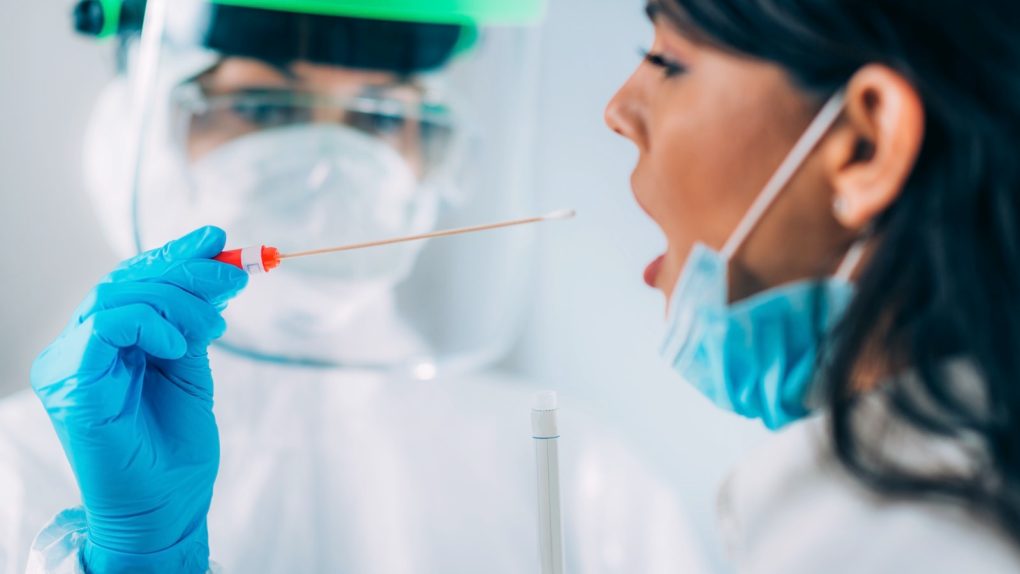- A negative COVID-19 test is by no means a 100% guarantee that you don’t have the coronavirus.
- A false negative can happen when someone gets tested immediately after infection.
- Ignoring common coronavirus safety guidelines can also lead to an infection in the wake of a negative COVID-19 test.
It’s no secret that frequent COVID testing is an integral tool in the ongoing fight to keep coronavirus outbreaks at bay. Especially because asymptomatic carriers can unknowingly spread the virus far and wide, being aware of one’s COVID status is crucial at a time when the virus is still spreading rapidly across the country. In fact, a recent study found that when students on college campuses wear masks, socially distance, and get tested regularly, the COVID infection rate goes down by 95%.
With that in mind, it’s important to be cognizant of the fact that you might still have COVID-19 even if your test results show up negative. In other words, you should still adhere to coronavirus safety guidelines even if you have no symptoms and a negative test result. To this point, there are a few reasons why a COVID-19 test might yield a false negative.
One reason, as detailed by The Washington Post, is that current COVID-19 testing may not be able to detect the virus in its earliest stages:
Early in an infection, the virus may not have reproduced enough to be detectable. The false negative rate of PCR tests on the day of exposure is 100 percent, but falls to about 38 percent five days later as symptoms usually set in, according to an analysis published in the Annals of Internal Medicine. The rate decreases further, to about 20 percent, after three more days.
Notably, researchers are still unsure how soon after exposure to COVID someone will test positive for the virus. Does this mean that you should be in a constant state of panic? Of course not. But it does mean that you should remain vigilant and perhaps self-quarantine if you were exposed to someone who did in fact test positive for the virus.
The Post also mentions a dynamic that has undoubtedly played out countless times over the past few months: someone tests negative and contracts the virus shortly thereafter. After all, you could theoretically contract the virus at a supermarket 10 minutes after taking a COVID test.
The main takeaway here is that the coronavirus is highly infectious and following safety guidelines should remain a priority for everyone. Mask-wearing, proper hand hygiene, and adhering to social distancing guidelines is more important now than ever given that new and more contagious COVID-19 strains are making their way to the U.S. While the new COVID mutations aren’t necessarily more deadly than the original strain, researchers have found that it can spread much more rapidly. In fact, health experts believe that the UK-based COVID strain may become the dominant strain in the U.S. as early as March.








